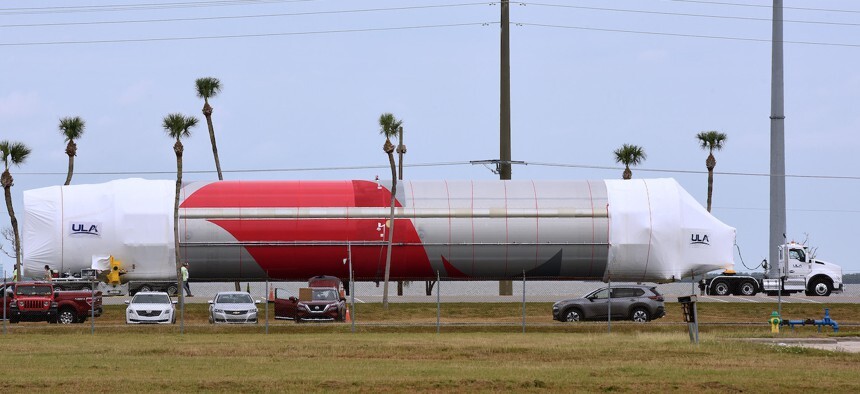24.07.2023
The Pentagon had previously planned to rely on just two heavy-lift launch providers.

The Space Force will choose three companies to launch critical national security satellites in 2025, rather than relying on just two, to make sure the most important military payloads make it into orbit, service officials said Wednesday.
“As we talked to our stakeholders, looked at the market, looked at the capacity that's happening, the amount of launches that are happening, we made the determination that in order to really assure access to space, that adding a third provider into what we're calling Lane 2, was good for the nation,” said Col. Douglas Pentecost, deputy program executive officer for the Assured Access to Space office.
The Space Force announced earlier this year it would split the bidding for dozens of launches into two groups to usher new entrants into the market. “Lane 1” will include the lower-risk missions, “Lane 2” the more challenging and “critical” ones. By allowing emerging companies to bid on easier missions, the Space Force hopes it can enable those companies to eventually compete against industry leaders SpaceX and ULA.
ULA and SpaceX won phase 2 of the competition for national security space launches in 2020, beating out Northrop Grumman and Blue Origin. However, Blue Origin is still building the BE-4 engine for ULA’s Vulcan rocket which is used for national security missions.
Missions in Lane 2 will carry billion-dollar payloads that are needed to meet adversarial threats, Pentecost said.
The Space Force in its second draft request for proposals said it wants three capable launch providers so it can guarantee the military’s satellites get to space. Pentecost said they made the decision because there are “a ton” of other companies also trying to buy launch services.
“We also looked at the small launch market: There have been several companies that are running great and then have recently declared bankruptcy. And while I don't think that is the problem with any of our three big guys, you never know,” Pentecost said.
The decision was also made in case there’s not enough launch capacity and demand drives prices up, said Col. Chad Melone, senior materiel leader for Mission Solutions Space Acquisition Delta.
Still, the three Lane 2 providers won’t all be equal. The first and second best companies will split Lane 2 missions 60-40, and the third company will only get seven missions: five GPS missions and two “direct inject” missions that will deliver payloads to the GEO orbit.
“We do think that all of our industry partners want to be the No. 1 guy. So we think that will provide competitive pricing to keep our costs down,” Pentecost said.
The Space Force also expanded the number of missions since the previous RFP draft. Lane 2 will now cover 58 missions, up from 39 missions, Pentecost said.
“Companies need to show how they’ll be flying by 2027, but if you're flying before that or if your schedule is showing that you're going to be flying before that, you will get significant strength which will put you in a better position to win the best provider or second best position in this competition,” Pentecost said.
A company can win a Lane 2 contract if its rockets aren’t ready yet, but won't be assigned any missions until they are. The Space Force will assign missions every October, Pentecost said, and if a company isn’t flying by the time October rolls around, the Space Force will go to another company.
While some in the industry are concerned about emerging companies’ ability to finish developing their rocket engines in time, Pentecost said he’s confident most of the companies will be able to meet the 2027 deadline.
The team has seen detailed schedules from industry, and “we have a pretty good sense of where the emerging providers are,” Melone said.
The Space Force will release the final RFP by September so companies can submit proposals by December. The service will award the contracts next October and start ordering missions for fiscal 2025, Pentecost said.
Quelle: Defense One
